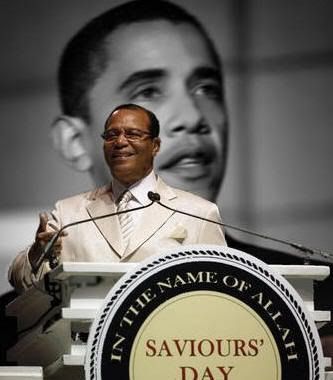Friday, October 31, 2008
The consolations of art
The savagery of this election is unlike any before — and 2004 was acidic enough. Just blogging here, commenting on others' blogs, and reading about the campaign has left me drained, feeling like Michelangelo when he painted himself as an empty bag of skin in the Last Judgment fresco in the Sistine Chapel. If I tried to follow all the developments, charges, countercharges, rumors, and commercials, as some people apparently are able to, I'd go mental.
When the world is too much with me at times like these I turn off the chatter and get immersed in good music. While The Messiah was doing his all-TV-channels, May-Day-in Red-Square parade the other night, I was in a different world, reminding myself of what my species can do at its best, rather than the norm.
My vehicle of deliverance that night was a recording of Dvořák's 6th Symphony, performed by Christoph von Dohnányi conducting the Cleveland Orchestra. The Dvořák 6 is bracingly red-blooded in places, ravishingly lovely in others. Dohnányi isn't on my short list of great contemporary conductors (which includes Mariss Jansons, Valery Gergiev, Charles Dutoit, and — if he's still active — Sir Charles Mackerras), but he seems to have the temperament for this composer.
Czech music of the 19th century is quite different in sound and spirit from others of the same period, especially the Austro-German stuff. Its tone is probably closest to Hungarian, with some of the same Slavic spice, but also a resigned, melancholy sweetness. Maybe you have to be Czech or Hungarian to fully capture that sound, and Dohnányi has it in his Hungarian genes.
The 1991 Decca recording is typically full-bodied, with excellent transparency, a fine example of the sound quality the company's production team was getting at the time. (Decca has since been swallowed by Universal, which mainly sticks to reissues from the back catalog and a few calculated blockbusters.)
Listening to the Dvořák was a cleansing, uplifting experience — a reminder that while politicians and economists are banging on about how we can live better, we can also live deeper. There is a hierarchy of meaning. This world is important, but not ultimately important.
Wednesday, October 29, 2008
Checking in with the Constitution Party
That apparently dwindling band of Americans who might be loosely called constitutionalists — those who believe that the central government is limited to certain enumerated powers, and has no business monkeying around outside those specific duties — isn't likely to get much joy out of this season.
Many constitutionalists call themselves libertarians, and while libertarians' hearts are in the right place on limiting the reach of the federal leviathan, I think they carry their anti-government, rugged individualist ideas to ridiculous extremes. But one party that kept faith with the letter and spirit of the Constitution is not avowedly libertarian, and while it is definitely on the fringe, it might be important in ways greater than its numbers or present influence would suggest. It's the Constitution Party, which has nominated Chuck Baldwin and Darrell Castle for president and VP, respectively.
I must admit to not having given Chuck Baldwin the attention he perhaps deserves. (There are just only so many hours in the day.) But with the country racing toward the wall, it might be time to take a closer look.
Here is the Baldwin-Castle web site.
My first reaction when pulling up the site is: What an ugly mess. The splash page design looks like one of those mailbox stuffers where franchise businesses proclaim, "10% DISCOUNT WHEN YOU MENTION THIS AD!" The Baldwin site almost shouts, "Cuckoo corner!"
Let us try to ignore that, and click the tab "Issues." Here are a few highlights among Baldwin's positions, with comments by your blogger.
The "Baldwin-Castle Doctrine": No foreign government or world government body or entity, not even an ally or neighbor of the US is allowed to own any portion of US roads, airports, homes, buildings, lands, waters, resources (oil, gas, precious metals, minerals, etc,), religious facilities (no matter what faith), stocks, bonds, US treasury notes, businesses, banks, military bases or military assets or manufacturing facilities in the US regardless of how much the foreign governments donate to the political campaigns or private fortunes of US officials, elected or bureaucratic, or even to the US treasury.Well intentioned, and a worthwhile goal to work for. But right now, thanks to our hapless past economic policies, foreign governments own nearly half of our national debt. If we were to insist that they sell their Treasury paper, the market repercussions would be catastrophic. Also, the details would be hard to work out. America is still a rookie in the Socialist League, but many European governments have long owned large parts of major companies based there. Would none of those companies then be allowed to buy any interest in U.S. companies? Would all those companies that have offices and facilities in the U.S. have to sell up or leave? That would be a hard belt in the chops to our economy, the last thing we need at the moment.
Education: I oppose enactment of any federal laws subsidizing or regulating the education of children. [But later] I wholeheartedly support the unimpeded right of parents to provide for the education of their children in the manner they deem best, including homeschooling or private or religious instruction. My Administration will oppose any and all federal legislation that would interfere with or restrict that liberty. I support equitable tax relief for families whose children do not attend government schools.Yes, education is one of those areas that should be under state and, especially, local control. The federal bureaucrats add no value and diminish administration tailored to local conditions and offering a variety of methods throughout the nation. However, tax relief for parents whose children do not go to government schools is a form of subsidy. I'm not against it, but let's be honest about it.
Foreign policy: President Bush should have supported Ron Paul's bill, H.R. 3076, the September 11 Marque and Reprisal Act of 2001. This is the constitutional way to deal with rogue terrorist organizations. This is the way President Thomas Jefferson responded to the Barbary pirates.Good as far as it goes. But the foreign policy plank completely avoids discussion of threats from state actors. What should we do about Iran? A resurgent, aggressive Russia? Et cetera. Very tough questions to deal with and no easy answers. But such questions are one of the most important things we expect a president to take on. Baldwin's silence is loud.
According to Congressman Paul, a letter of marque and reprisal is a constitutional tool specifically designed to give the President the authority to respond with appropriate force to those non-state actors who wage aggression against the United States while limiting his authority to only those responsible for the atrocities of that day. Such a limited authorization is consistent with the doctrine of just war and the practical aim of keeping Americans safe while minimizing the costs in blood and treasure of waging such an operation.
Immigration: We will seal our borders and ports. I support construction of a fence to secure our borders, but a Baldwin Administration will not wait for the construction of a fence in order to seal and secure our borders. We will utilize whatever force is necessary, including regular military personnel, to effectively secure our borders immediately. It is lunacy to send troops and National Guard half way around the world to protect the borders of Iraq while leaving our own borders wide open. …This, and other language about immigration, is far stronger and more sensible than anything issuing from the orifices of our two major candidates. Unfortunately, he is completely fixated on illegal immigration. That's only part of the problem. It ignores the overpopulation, social tension, and balkanization caused by huge numbers of perfectly legal immigrants, which the government and its globalist puppet masters promote to dilute and ultimately marginalize the indigenous European-descended population in a "divide and conquer" policy. Baldwin seems completely clueless about the calculated race replacement policies that will make the United States into a Third World country if not stopped.
There will be no "path to citizenship" given to any illegal alien. That means no amnesty. Not in any shape, manner, or form. I would not allow tax dollars to be used to pay for illegal aliens' education, social services, or medical care. As President, I would end birthright citizenship for illegal aliens. There would be no "anchor babies" during my administration.
Defense: Supporting the troops' means putting their interests and America's interests first and not in needlessly endangering them by engaging in "policeman off the world" military adventures all over the world. We should be the friend of liberty everywhere, but the guarantor and provisioner of ours alone. As President I will never deploy American troops into combat without a declaration of war by Congress, pursuant to Article I, Section 8 of the U.S. Constitution. Under no circumstances will the Baldwin Administration commit U.S. forces to serve under any foreign flag or command. I am adamently opposed to any New World Order, and will reject U.S. participation in or a relinquishing of command to any foreign authority.Excellent. Did I write this? No, I'd like to think I'd have caught the typo. And I support greater federal spending on copyediting. A Baldwin Administration should sponsor a Full Employment for Editors bill.
In a Baldwin Administration, the armed forces of the United States will always serve under the flag of the United States and the mission of our armed forces will always be to provide for the common defense for these United State of America.
The "sanctity of life": The pre-born child, whose life begins at fertilization, is a human being created in God's image. The first duty of the law is to prevent the shedding of innocent blood. It is, therefore, the duty of all civil governments, and that certainly includes the office of the President of the United States, to secure and to safeguard the lives of the pre-born. I affirm the God-given legal person hood of all unborn human beings, without exception. In addition to guaranteeing the legal person hood of the unborn, Ron Paul's Sanctity of Life Act, which I wholeheartedly support, would strip the appellate jurisdiction of the Supreme Court in all cases of abortion in accordance with the U.S. Constitution, Article III, Section 2. …
Under my administration, we could end legal abortion in a matter of days, not decades. And if Congress refuses to pass Dr. Paul's bill, I will use the constitutional power of the Presidency to deny funds to protect abortion clinics.
Certainly the abortion issue should not have been decided by the Supreme Court, on a ridiculous "right to privacy" basis, or any other that I can see that makes it a federal case. Having Roe v. Wade imposed by a court has created no end of divisiveness and bitterness. It is completely understandable for abortion opponents to be angry about this "legislation from the bench."
But. The Supreme Court has no more business outlawing abortion than it does making it a right. This should not be a judicial matter at all, other than one of narrowly interpreting legislation about it.
So who should decide about the legality of abortion? Jurisdiction should be at the state level at the very most, and possibly on a county level. To repeat: decided by legislation, not courts. It recognizes that there is an unbridgeable difference of opinion that is somewhat geographically sorted.
No one needs legislation that allows them to not undergo abortion, but my proposal would undoubtedly mean that some women would have to travel to another jurisdiction if they wanted the procedure. That's why I am inclined to favor a "county option" system, like Texas has (or used to have, I don't know the current status) for selling booze. Presumably a woman who chose abortion would have to travel in some cases, which imposes an extra burden, but a county system would probably reduce that to the unavoidable minimum. It's not an ideal solution, but we accept that laws about many things differ from state to state, which is in line with constitutional principles.
I realize, of course, that for Chuck Baldwin and many others abortion is a moral issue, and he would argue that moral issues are not subject to a mere vote count. But for many it is not, or not necessarily, a moral issue. And if we value liberty, we have to acknowledge that people can disagree about whether something falls under an absolute moral rule.
The Constitution Party's platform, including many details I haven't touched on, is worth reading as a stimulus to thought. The country would be better for it if the party were taken seriously, although the mainstream media wouldn't dream of it — one more good reason. As presently embodied in the Chuck Baldwin candidacy, the worst that can be said of the party is that it is not fully consistent and sidesteps some important problems; the best is that, unlike the Republicrats, it takes U.S. sovereignty and the federalist system seriously.
Tuesday, October 28, 2008
Questioning immigration in Britain gets you yanked off the air and a pie in the face
Britain's new immigration minister, Phil Woolas, has aroused the Furies against himself. What was his unthinkable misstep? Did he hint that the U.K. was destroying what was left of its own culture by importing millions of Middle Eastern Muslims and Africans who would set up their own colonies with their own social systems and laws?
Good Lord, no, perish the thought. Such ideas cannot be spoken aloud in today's Orwellian Britain. He merely said, "On a common sense level there has to be a limit to the population. You have to have a policy that thinks about the population implication as well as the immigration implication."
Cultural issues aside, large parts of Britain are unbearably crowded these days, with shortages of affordable good housing and the highways clogged. But that doesn't matter to the Open Borders fanatics, who live to keep the immigration waves pounding in.
It didn't take long for his own Labour Party to yank his chain:
The BBC's flagship programme Question Time went out last night without a member of the Government on the panel, after the outspoken Immigration minister Phil Woolas was ordered to turn down an invitation.Less than a month into his new job, Mr Woolas has created waves through his outspoken comments on immigration and on the official status of the Church of England. He had originally accepted the invitation to be on Question Time when asked two weeks ago, but this week, sensing trouble, more senior members of the Government instructed him to pull out.
They could well have sensed trouble. The country in general and the Labour Party in particular are soused on cultural Marxism, which looks on any sane discussion of population stabilization as equivalent to that all-purpose curse word, racism. A fellow Labourite on the program, when asked if he thought Woolas was "talking nonsense" about setting a limit to the number of people the small island nation could accommodate, said: "Nonsense is a word I would not dream of using about a colleague, no matter how appropriate it might be." Up yours, colleague.
A member of the No Borders group threw a cream pie into the minister's face while he was speaking at a debate at Manchester University. A spokeswoman for the group said Mr Woolas had been "spouting right-wing anti-immigration policies".Just in case anyone didn't get the message that you don't question the totalitarian Left, she added, "We threw the pie because we didn't want to engage in debate and legitimise what he was saying. What he was spouting were right wing anti-immigration policies. The danger is that people like him are making such views mainstream."
The "danger," in other words, is that some of their fellow citizens might hear Woolas and be convinced. That is a chance that cannot be taken, so he must not be heard.
The minister is a very unusual man in today's U.K., willing to step outside the limits imposed by the thought controllers of the State and the seething political correctniks. No doubt he will quickly learn to toe the Party line or be given a new portfolio, minister of bus maintenance contracts or something.
We can look forward to a similar climate under The Messiah's administration.
Sunday, October 26, 2008
Those only learn who suffer
who suffer; and the future
you shall know when it has come ...
All will come clear in the next dawn's sunlight.
-- Aeschylus, Agamemnon
The crowd will cheer. The internationalists and appeasers who imagine every threat can be neutralized with dialogue. The leftists who believe the role of the State is to rule very nearly everything. The academics and journos for whom eloquent sophistry is the singular sign of greatness. The bureaucrats licking their chops at the prospect of millions of new dependent clients. The souls lost to God who imagine that Hope can be delivered by a man.
Lately I have thought often of St. Augustine, which is odd, because it was many years ago that I read his Confessions, and have forgotten most of it. Living in the fourth and fifth century, Augustine saw firsthand at Milan and Rome a civilization that had lost its way and its will to live. The European-American era that eventually arose from the blasted ruins of Greece and Rome seems now to be in a similar condition. The Chosen One is perfectly cast to assist at its dissolution, being acclaimed by a populace that does not believe in the virtues of the West, longing for a Great Leader to ease the transition to whatever ideology -- Marxism, Islam, nihilism -- claims it most quickly and aggressively.
Augustine converted to a new faith -- new to him, although it had been around for centuries -- and went back to his home in North Africa, where he did the work of a world outside of time, of the time that had savaged the heritage of ages.
There will be someone else in the crowd that gathers to shout the praises of The Chosen One. That person will most likely be far in the back of the throng, scarcely noticed. You might not even recognize him or her. It could be your brother or sister, your friend, or a complete stranger. Or yourself.
That person, not the one on the throne, will be a carrier of hope: the hope that is only to be found within, not in the schemes of the State; in the heart and spirit, not in futile attempts to create a heaven of this world. Perhaps those who sing hosannas to The Chosen One will soon learn through suffering that the perfect society is a nightmare, not a dream. That individuals must inspire institutions, not the other way around. That those who sell the liberty and culture, so dearly bought, for the sake of a charlatan's promises will be paid only in suffering.
Perhaps the crowd will then listen to other voices, now so anonymous, so hidden.
Not all will come clear: it never does in our human condition. But enough to welcome the next dawn's sunlight.
Friday, October 24, 2008
If you can "write" you'll "love" this
I guess we have reached the point where no phenomenon, real or imagined, lacks a blog dedicated to it.
Cats in sinks (I really like that one), clouds (that too), and … get ready … photos of signs with unnecessary quotation marks.
The "Blog" of "Unnecessary" Quotation Marks is not one I expect to turn to with my first cup of coffee each day, but I sympathize with the blogger. The widespread, sub-literate use of quotation marks for emphasis strikes me like a blow direct from Hades every time I see it. It's especially grating because it often reverses the intended meaning by implying irony — Our fish is "fresh" suggests it's passed its smell-by date.
Having spent their education studying self-esteem and the horrors of racist imperialism — one of which they have an unjustified amount of, and the other they have no worthwhile ideas about — many of today's citizens learn language almost exclusively from hearing it spoken. So they are far at sea in comprehending the difference between to and too, or principal and principle. And they do not know you add emphasis by italics (or if they are hand writing a sign, by letter size or underlining). Instead they reach for the wrong tool, quotation marks.
It gladdens the heart, though, to see how many people have posted photos of this aggravated assault on the English language. Clearly there are still those who care.
Wednesday, October 22, 2008
Creature from the socialist lagoon
Lewis Diuguid, an alleged journalist at the Kansas City Star, scolds McCain and Palin for using the word "socialist" to describe The Anointed One. He's not, you understand, arguing Obama isn't a socialist. No, it seems that socialist is a code word for black. Apparently we are not supposed to notice — or at least mention it in public — that Obama is black.
J. Edgar Hoover, director of the FBI from 1924 to 1972, used the term liberally to describe African Americans who spent their lives fighting for equality.Diuguid mentions four of those fighters for equality, including W.E.B. DuBois and Paul Robeson. DuBois was a Communist late in his life — long after even most leftists had lost their appetite for the party — who wrote, "Joseph Stalin was a great man; few other men of the 20th century approach his stature." Paul Robeson wrote a tribute to Stalin, praising Stalin's "deep humanity," "wise understanding," and calling him “wise and good.” Both men did help advance the cause of their race, which was genuinely oppressed at the time, but their advocacy of Red tyranny is hardly anything to celebrate. And while J. Edgar should have been put out to pasture long before he acquired too much illegitimate power, Diuguid implies that there was no basis for his distrust of DuBois and Robeson, which is either ignorance or biased revisionism.
Diuguid goes on:
McCain and Palin have simply reached back in history to use an old code word for black. It set whites apart from those deemed unAmerican and those who could not be trusted during the communism scare. Shame on McCain and Palin.How long, Lord, how long must we go on watching every word we speak for fear of some pest assuring us that we are really racists deep down and what we say doesn't mean what we say, but is some kind of occult, forbidden message? Is Diuguid his real name? A palindrome, you'll notice — could he be actually a Palin drone, cleverly planted to influence us by making us imagine that there are Obama supporters whose thinking is so warped?
Socialist = black. Up = down. Dog = cat. Diuguid = writer.
And "the communism scare"? Is that supposed to mean defending the world against Communism was just a storm in a teacup, equivalent to that "anti-Communist hysteria" phrase so beloved of collegiate leftists who think Communists were overheated liberals whose only desire was to create heaven on earth by eliminating a few stubborn reactionaries?
Listen, Mr. Diuguid: the Soviet Empire was the worst scourge in history, responsible for the death, torture, slave labor, and imprisonment of millions of innocent people, run by a paranoid schizophrenic who had people shot at random just to show who was boss, and one of whose successors told the United States "we will bury you." The Soviet Union operated a worldwide political crime syndicate that installed puppet governments in numerous states including (just to name a few in Europe) Poland, Czechoslovakia, Hungary, and Bulgaria, where no dissent was tolerated. If people like you had been in charge, the United States could very well have met the same fate.
As for your "code words," go stick them where the stars don't twinkle. I'll give you a code word: Diuguid. It stands for "hate-mongering, sickbag affirmative action–hire columnist." If there is any shame here, it's yours.
Sunday, October 19, 2008
SoCal is so-o-o Cal
Last week's base of operations for Mission: Vacation was San Diego. This account of the visit has no particular point to make; it's just a few observations, which might be interesting if such things interest you.
San Diego fits Southern California's traditional image much more than Los Angeles. (And Southern California generates most of the clichés about California, although the state is quite different north of the Bay Area, and the Central Valley is in another galaxy.) L.A. pretends, or used to, that it is a laid-back place of fantasy and leisure, but it has never seemed so to me. It's as charged-up and edgy as New York. Much of San Diego (hereafter abbreviated S.D., as the locals do) looks like L.A., especially in residential neighborhoods, but the vibe is different. I can't say what goes on under the surface, but San Diego still puts on a pretty good show of being an island of casual hedonism.
You might expect to find S.D. in crisis, like the rest of California, as Randall Parker has been telling us about lately in ParaPundit. Picture its high-class, seaside village La Jolla, as blonde trophy wives offer themselves on the streets for a loaf of bread. Former $3 million houses fall into ruin. A globalist multi-billionaire rides through the streets in a coach drawn by four matched white horses, with his family crest emblazoned on the doors. He holds a scented handkerchief to his nose, tossing the odd coin to the ragged urchins in their hand-me-down Georgio Armani rags.
It's nothing like that, of course. California may well be turning into a Third World country, but one characteristic of Third World countries is that the rich still have their enclaves of beauty and luxe. So far that includes La Jolla and good neighborhoods like Coronado. They remain lovely -- in the case of La Jolla, breathtakingly beautiful like the French Riviera (and as expensive).
Expensive to live in, but not necessarily to visit. We didn't stay in La Jolla, but probably could have afforded to on a modest budget just by forgoing the palatial hotels in the center of the village. We did have lunch in the inexpensive and charming Osteria Romantica, very authentically Italian, very good food in a casual but pretty little trattoria setting. Wonderful Italian pop music from the '50s and '60s plays in the background. I recommend you dine there if you're in the area. You'll thank me for it.
People in S.D. on business have a reason to kip at one of the high-rise chain hotels on the waterfront, but why would any vacationer in their right mind stay in the seedy tourist shakedown area called the Gaslamp Quarter when the city offers so many more pleasant locations?
Almost anywhere outside the Gaslamp, something gladdens the eye. Balboa Park, where we spent a good deal of time, is one of those rare famous sites that are just as they should be, that cannot disappoint. Unlike Chicago and San Francisco, S.D. retained the wonderful buildings from its World's Fair early in the last century, and the Andalusian-style architecture is garnished with lush tropical flora.
Point Loma is at the end of a peninsula that gives you a spectacular view of S.D. on one side and the Pacific on the other. To get there you drive through Fort Rosecrans Military Reservation. On the hillside are row after row of stark white headstones marking the graves of those who died in service to their country. At the lookout point near the Cabrillo Monument (for the Portuguese sailor who led the first European expedition to these shores in the 16th century), we watched as an aircraft carrier made its way from the naval base and headed out to sea. At the nearest point to us, it entered a fog bank that was creeping in from the ocean and disappeared into it -- a fantastic real-life magic trick.
Natural beauty, which much of S.D. offers in abundance, needs to be leavened with human qualities. In that respect S.D. may have a few lagging indicators.
On a superficial level, people are pleasant enough. Sometimes almost maddeningly so. Everyone in the tourist industry -- not only at the car-rental desk, which is natural, but waiters, hotel personnel, car fetchers (I detest valet parking, but it's hard to avoid in S.D.) -- is dying to give directions and sightseeing tips.
This became something of a problem. I was fairly familiar with the city's geography and attractions, even places I hadn't been to, but my wife had only visited S.D. once before. To the question, "Do you know how to get to [or know about] ... ," the immediate answer from the pair of us tended to be a simultaneous yes and no. This presented our would-be helpers with an awkward dilemma. It was also evident that they were disappointed when their steering was unneeded. Eventually in the interest of good relations I just belted up and accepted directions and advice.
It's easy to dismiss the locals' helpfulness as a job requirement, and surely training in the "service industry" is part of its motivation, but there is an outgoing dimension to the native Southern California personality that makes the welcoming touch only partly artificial. I can't imagine any amount of training that could elicit such a beneficent attitude among workers in similar positions in, say, Boston or New York.
Nobody appeared to be in any hurry, a pleasing difference from most U.S. cities. It's probably a different story inside the elite institutions like Scripps and Salk, but the average San Diegoan seems to have a little of the manaña mindset.
S.D. does not strike me as a setting that encourages deeper personal attachments. I saw no couples (straight or gay) walking hand-in-hand. In restaurants it's mainly groups, even groups of families. With so many activities and enjoyable pastimes, possibly few feel any urgency about pairing up. Maybe that makes sense for the young, but it becomes a habit, and I wonder how much satisfaction people take in group scenes as they turn middle aged. S.D. has the virtues, but also the drawbacks -- for some -- of an extroverted culture. It can't be that comfortable long-term for those with serious intellectual interests. For a place of its size, it has few bookstores.
One day we drove to a town called Temecula about an hour north. It's famous for wineries and in a scenic mountain valley, but exemplifies the oncological growth that has nearly ruined many places in California, even outside the Mexican Invasion belt. Temecula has an old part of town that has been tourist industrialized into a self-parodying Old Town. Meanwhile the new Temecula that has grown up around it is appalling, wineries or no. Other than a large Abbott Labs facility, it consists mainly of huge shopping malls. One of them, a monstrous blight called the Promenade, is probably larger than the whole town was 30 years ago, and has all the inevitable big-box stores (Macy's, JCPenney, The Gap, Old Navy, &c.) arranged in a pattern that is maddeningly confusing to navigate.
Although we edited from our itinerary most areas of S.D. that should be avoided, it was impossible to ignore some of the cracks in the glittery facade of Southern California. There is a part of the city just north of Balboa Park, logically named North Park. About 1987, I visited friends who lived there. At the time North Park was, though not ritzy, the kind of respectable lower-middle-class neighborhood that has all but vanished. Today it is, according to one guidebook, "up-and-coming," although "down-and-going" would be more honest. That is, North Park is now very "diverse," which in California means Mexicanized, with outposts of the homosexual, punk, and Goth subcultures.
What drives to such extremes so many people who live in what is, for the most part, the attractive and benign environment of S.D.? At the Trader Joe's grocery, my purchases were rung up by a 20-something woman who was very pretty -- except for the tattoo that covered her entire right arm, up to the shoulder. It was the multi-colored picture sort of tattoo, like a comic book page.
I don't get it. Épater
Are we never satisfied?
No. We are not satisfied, even in an environment that can be mistaken for an earthly Eden. We try out substitutes, however bizarre, for what we need, but no substitute will do.
Whether we know it or not, we want Eternity.
On an obviously different level, I enjoyed myself immensely on the trip. Southern California still has a lot to recommend it for a visit. But despite having spent 10 years of my life in California, it and I have grown in different directions. I still feel, as worldly places go, "at home" in Santa Fe (although I haven't lived there since 1991) and Tucson, but California is now too foreign in too many ways.
That leaving-behind is probably good for my spiritual development. This world of sense phenomena is not my true Home. I must learn, to love, and to leave it.
Saturday, October 11, 2008
Taking the Lord's middle name in vain
Twice last week alone, speakers at McCain-Palin rallies have referred to Sen. Barack Obama, with unveiled scorn, as Barack Hussein Obama. Never mind that this evokes -- and brazenly tries to resurrect -- the unsavory, cruel days of our past that we thought we had left behind. Never mind that such jeers are deeply offensive to millions of peaceful, law-abiding Muslim Americans who must bear the unveiled charge, made by some supporters of Sen. John McCain and Gov. Sarah Palin, that Obama's middle name makes him someone to distrust -- and, judging by some of the crowd reactions at these rallies, someone to persecute or even kill. As a secular Muslim, I too was offended. Obama's middle name differs from my last name by only two vowels. Does the McCain-Palin campaign view me as a pariah too? Do McCain and Palin think there's something wrong with my name?Aside from the fact that Muslims look forward to the day when there are only Muslims and dhimmis in the world, and the only law is shari'a law, there is certainly no reason why anyone should have any negative associations with the name ... er ... you know, that name, the one we mustn't mention. A presidential campaign should be based on serious issues, like "hope" and "change."
I doubt very much that Obama is a Muslim; his religion is Marxism. Maybe there are people who are using "Hussein" to associate him with terrorism, but he's already done that for himself, by working hand-in-glove with William Ayers. That and a dozen other reasons are enough for me to dread Obama becoming president, even if his middle name were Washington. Actually, Washington might as well be his middle name, since he belongs to the cult of utopians who see the solution to every problem as more regulation, taxation, and central government control.
As it happens, though, "Hussein" is part of his name, and as with so much about him, his zombie-like followers think you are a racist, Islamophobic, bigoted potential homicidal maniac to mention it. Better be careful; they would like to have you prosecuted under a "hate crimes" law. Too late for me. But maybe not for you.
So next time you unwittingly slip into the unsavory, cruel days of our past by using the middle name of Barack Obama (pbuh), resolve to reform and never again Hussein Hussein Hussein Hussein Hussein Hussein Hussein Hussein Hussein Hussein Hussein Hussein Hussein Hussein Hussein Hussein Hussein Hussein Hussein Hussein Hussein Hussein Hussein Hussein Hussein Hussein Hussein Hussein Hussein Hussein Hussein Hussein Hussein Hussein Hussein Hussein Hussein Hussein Hussein Hussein Hussein Hussein Hussein Hussein Hussein Hussein Hussein Hussein Hussein Hussein Hussein Hussein Hussein Hussein Hussein Hussein
... sorry, my keyboard has gone nuts ever since I spilled some Worcestershire sauce on it and I put it in the dishwasher.
Gap week
The future looks so bright, I've got to take a vacation from it. So I will be in very Southern California next week and, being part of that primitive tribe that carries on with neither a laptop nor a "smart" phone, probably not posting. See you back here on or after Sunday the 19th.
Friday, October 10, 2008
Wednesday, October 08, 2008
Hard times
- Let us pause in life's pleasures and count its many tears,
- While we all sup sorrow with the poor;
- There's a song that will linger forever in our ears;
- Oh hard times come again no more.
- 'Tis the song, the sigh of the weary,
- Hard times, hard times, come again no more
- Many days you have lingered around my cabin door;
- Oh hard times come again no more.
The global economy in which billions are shifted with a few keystrokes, the mysterious formulas and algorithms that the movers and shakers placed infinite faith in, all our sophisticated engines of wealth generation, seem suddenly like docile pets that have reverted to type, gone feral.
I hardly have a moment to call my own today, so I'll link to some thoughts along the same lines written by John Robb at Global Guerrillas. He says:
In the case of the current financial collapse, the global shadow banking system (a globally inter-networked collection of unregulated financial products) is approximately $450 trillion, as compared to a US GDP of $15 trillion or a global GDP of ~$60 trillion. Put another way, the financial liabilities of the highly leveraged Deutsche Bank are 80% of Germany's GDP and Barclay's liabilities are 100% of the UK's GDP. As the leverage underlying the shadow banking system unwinds and more banks fail, the scale of the loses experienced will rapidly exceed nation-state budgets. …
The speed at which shocks spread in this globally interconnected system is faster than the response time of governmental institutions (tight coupling). In this financial crisis, the cascade of failure in the system spreads at the speed of information networks and computer automation in trillion dollar increments. …
The system's function is beyond understanding. This is due to a lack of data (opacity either due to the nature of the system or by design as in the shadow banking system), the number of variables or connected systems, a lack of long term historical data on its operation in its current configuration, etc. The result is that efforts to mitigate the system's excesses produces pyrrhic victories (where the corrective action produces negative outcomes, like how efforts to ramp biofuel production impacted food prices). Worse, due to the system's complexity and the lack of an effective means to address its excesses, we are reduced to treating symptoms of failure (as with the Paulson plan) and even then under violent debate.Time brings much that is new into our lives. But hard times are all, in the end, a lot like they have always been. And it looks like they have come again.
Tuesday, October 07, 2008
Bring it on!
Ben? Ben? Wake up! You were having that awful nightmare again, the one where you dreamed you were Fed Chairman and the market was tanking and you were running in place and couldn't get anywhere? I've been reading up on recurring nightmares. Let's practice Cataclysm Therapy.
Right. I want you to lie down and re-enter that dream. What do you see?
Market pushing through bedrock, down another 500 points, check. What else?
You see yourself in the bunker with the Fed governors, handing out the cyanide capsules, okay. Now what? A 5 percent interest cut, bringing rates down to, uh, minus 3 percent? Stop right there! Let's rewrite the script, as we Cataclysm Therapists say.
Instead of running from our fears of recession and depression and ruin, let's face them. Make friends with them.
Now listen carefully. I want you to imagine embracing doom. It's our shadow side, like those Junkians or whatever they're called talk about. We need a disaster to make us whole, and it's your throw, baby.
I want you to visualize an infinitely deep well. Too much? All right, try this. A million printing presses, in every city and town in this great land, all of them printing $1,000,000 bills, 24/7. Forget that helicopter drop, are you having Vietnam flashbacks? I want you to see every computer printer in every home and office printing those million dollar bills. For minorities, $2,000,000 bills. What? Well, ask Congress to raise the debt limit by another 50 quadrillion and give 'em all computers and printers. Come on, Ben, get up to speed!
Now let's do some brainwashing, er, brain scanning, no, what do you call it, storm draining or something. Don't limit your imagination. Eh? Send everybody an air conditioner to stimulize them? Keep going. You're on the right track. Five hundred lottery tickets for every man, woman, child, cat, dog, and parakeet? A thousand for every minority parakeet? Great. Keep going!
Guest appearances for everyone on American Idol? Check. A date with Jessica Alba or George Clooney, each to his or her choice? You're getting in the groove, Ben! No, don't start second guessing yourself. What do you mean, there aren't enough of Jessica and George for everybody? Clone 'em! Stop limiting yourself — you're the government, and you're here to help!
Say what? Sell Treasury bonds to extraterrestrials? Ben, I've gotta hand it to you. You're the man.
Monday, October 06, 2008
The golden fleecing
George Bush said it was a plan for Main Street, not Wall Street. Nancy Pelosi said, "All of this was done in a way to insulate Main Street and everyday Americans from the crisis on Wall Street," and "the party is over. No longer will taxpayers be forced to bail out reckless investors." Not till next time.
If you were watching the tape today, you may have noticed that so far the medicine (price per dose: $850 billion) doesn't seem to have been very therapeutic. Investors — smart money, dumb money, it didn't matter — gave the bailout a New Jersey salute.
This blog has been quiet for a few days because, among other reasons, I really didn't want to do another economy posting. It's not my field, normally. But for some time to come we're all going to have to be very involved with economics, like it or not.
If you have an investment portfolio, it's relatively easy to put up the storm windows; just go to cash equivalents (money market funds) or Treasury Inflation Protected Securities (TIPS). You won't make any money, and you'll lose to inflation (even with TIPS, which are based on a manipulative formula that understates the rate of inflation), but you'll keep most of your dough. Or you can go bargain hunting — risky, but there appear to be some extraordinary values in commodities and energy. The market currently loathes them (loathes just about everything), but it is their nature to move in extreme cycles. I took some shares of El Paso, a natural gas play, when they sank to a ridiculous $9.68. They could go lower.
The economy ought to be just background noise, something we need to think about a few times a year, but that isn't the status quo. You've got to pay attention and have a strategy. Best of American luck to you, friends.
Thursday, October 02, 2008
Rescue me
I thought if the House turned down a bill, that was supposed to bin it. I guess the rules have changed. Now a branch of Congress can vote a bill down and after three days of pressure can see the light and reverse itself. We've become like the European Union, where if a country refuses in a referendum to join they just keep having more referendums until the opposition gets so tired of the effort that they yield to the inevitable.
Updating yesterday's entry about NPR: I listened to "Marketplace" again last night. To be fair, the program did begin with an interview of a Congressman from Oregon who insists the bailout won't work and will just contribute additional moral hazard, with large institutions becoming more confident than ever that they can play fast and loose because they will be saved by the government playing Robin Hood in reverse. (It's interesting that the bailout has brought the word "moral" — previously a quaint antique among our chattering classes — back into limited use in the media.)
With that segment out of the way, "Marketplace" got back into high gear promoting the bailout. The lowlight of the show was an interview with a psychologist. Host Kai Ryssdal prefaced it by wondering why, when so many would benefit by the bailout, they were willing to go against their own interests just because they were angry at Wall Street. That seems to be a big element of the Party line, a variation on What's the Matter With Kansas? (The little people are too stupid to know what's good for them, unlike their Liberal Establishment betters, and so vote wrong.)
I didn't catch the psychologist's name, but he was perfectly cast. Even had a Dr. Freud-like possibly Viennese accent. He explained that people who are angry often want revenge. My word, these brain masseurs are smart! He added that if our Supreme Leaders want to get the bailout passed, they should throw in a few "revenge" provisions like capping CEO pay to win the support of the yokels.
The program's next tactical move was to show how we need the bailout for ordinary salt-of-the-earth small business owners. We heard interviews with several of them, whingeing about how they couldn't get loans to expand their businesses or meet their payrolls. One woman who owns a fragrance boutique or some such thing bewailed her inability to borrow from a bank to hire a new employee.
I sympathize with anyone trying to keep their own business afloat, but there may be more to the story. There was no evidence that the reason these people couldn't get any dosh from the banks was because the banks were marking time waiting for the bailout. Possibly there are still some loan officers with a shrewd ability to assess an enterprise's prospects. After listening to a few of the stories, I couldn't help wondering: is there no one left in this country who can run a business with a positive cash flow?
I often enjoy the irreverent comments on the MarketWatch Web site (not to be confused with "Marketplace"). Today, "Goldbrain" writes, "Based on the reaction to the Senate vote yesterday, specifically the strengthening of the dollar today, there seems to be no concern about ever paying back any of the money borrowed/printed out of thin air. The next plan should be to eliminate taxes altogether and simply print all the money necessary to pay for all government services, the military and free health care etc. If nobody cares, then nobody cares!"
"Daveward" writes, "Perfect. Tell the taxpayers they can defer all taxes to three generations down the line. Talk about stimulus!"
Wednesday, October 01, 2008
National Public Radio: Its master's voice
NPR's slanted "news" reporting has acquired a new, peculiarly unsettling twist.
Normally, National Public Radio, like all government-supported media (BBC, Australian Broadcasting Corporation, etc.) has a dependable left-wing, pro-Democrat/Labour, pro–racial grievance group bias. So it was startling to listen to "Marketplace" yesterday evening during my commute.
"Marketplace" has been selling the bailout like the Dallas Cowboys Cheerleaders of Wall Street. Its so-called reporting and interviews have been 100 percent, religiously pro-bailout in the most recent shows I've heard.
It's hard to doubt that pressure has been applied from whatever office in the federal Politburo oversees the disbursement of taxpayer money to NPR. Count it as one more bit of evidence — not particularly significant in itself, but one of many clues — that the government is pushing for this bailout with an obsessiveness the like of which has never been seen within living memory. And that suggests, in turn, that the corporate interests who keep pet Presidents, Congresscritters, and bureaucrats in cages out back by the garage are desperate.
There is no reason why NPR shouldn't give airtime to bailout pushers. What is craven and irresponsible is that this corrupt organization (as usual where its politics are concerned) offers no variety of viewpoints. Listening to "Marketplace," if you knew nothing else about the controversy, you'd imagine that everyone except a few die-hards and cranks was applauding the Banker Welfare Act of 2008 like a football crowd watching the home team score a game-winning touchdown in the last 30 seconds of play.
But it isn't just loons who oppose this slush fund. I give you, for one example, Jeffrey Miron, an economist at Harvard (can't get more respectable than that!):
Talk of Armageddon … is ridiculous scare-mongering. If financial institutions cannot make productive loans, a profit opportunity exists for someone else. This might not happen instantly, but it will happen. Further, the current credit freeze is likely due to Wall Street's hope of a bailout; bankers will not sell their lousy assets for 20 cents on the dollar if the government might pay 30, 50, or 80 cents.The costs of the bailout, moreover, are almost certainly being understated. The administration's claim is that many mortgage assets are merely illiquid, not truly worthless, implying taxpayers will recoup much of their $700 billion. If these assets are worth something, however, private parties should want to buy them, and they would do so if the owners would accept fair market value. Far more likely is that current owners have brushed under the rug how little their assets are worth.
The bailout has more problems. The final legislation will probably include numerous side conditions and special dealings that reward Washington lobbyists and their clients.
Last night's "Marketplace" featured a discussion about whether Republicans or Democrats deserved more blame for the — wait for it — the "failure" to pass the bailout bill in the House.
Excuse me? NPR's statist credentials are flashing red, if not Red. Servants 'R' Us apparently believes Congress's job is to shut up and obey orders from the Great Leader. Could it be that, for a change, Congress was actually listening to ordinary citizens — not out of respect, of course, but because every man, woman, and child with a seat in the House is faced with the frightening prospect of having to go back to their home district and look their constituents in the eye, owing to a Moment of Truth coming up in early November.
There was a similar rare sighting of political backbone, or healthy fear, last year when Congress did not take the bait of comprehensive immigration "reform" (i.e., amnesty). Then, too, the Liberal Establishment media told us that Washington had "failed" to pass the legislation. Far from a failure, it was one of the rare moments when the system worked. In this grim time, a success is when our government does nothing.





























